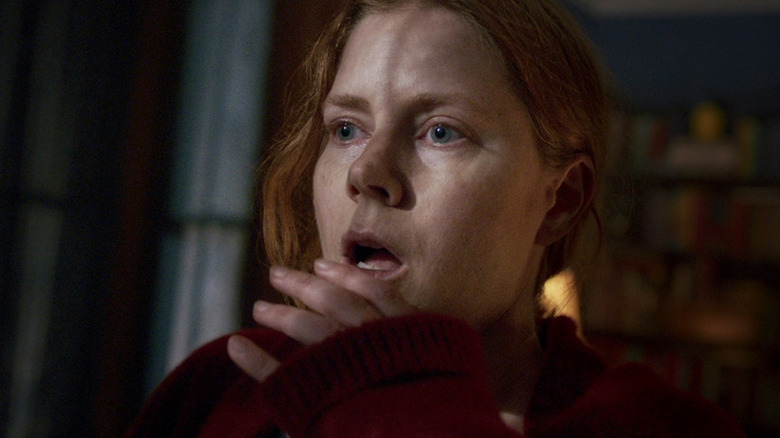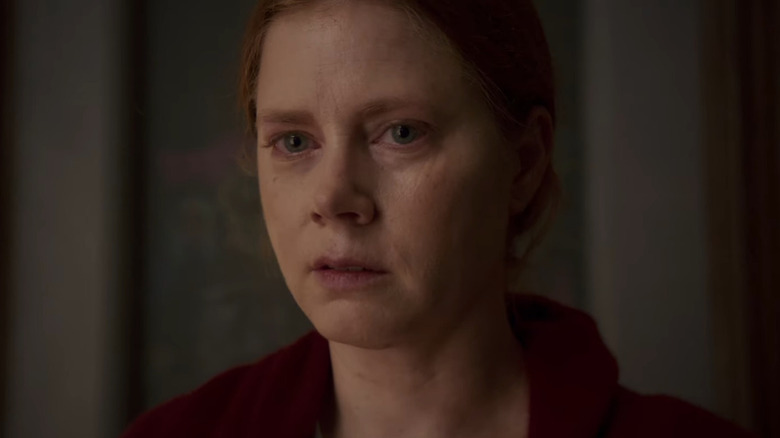Director Joe Wright Says The Released Cut Of The Woman In The Window Wasn't His Version
The Netflix thriller "The Woman in the Window" didn't come out the way director Joe Wright wanted it to. It clearly wasn't what audiences wanted either, with a Rotten Tomatoes critics score of 26 percent and an audience score of 33 percent.
According to an interview with Vulture, (via The Wrap), Wright wasn't happy with the final cut of "The Woman in the Window" because of changes made as it moved through production. It has a pretty great cast, with a star in Amy Adams, and supporting characters played by Gary Oldman, Julianne Moore, Jennifer Jason Leigh, and Anthony Mackie. The film adaptation was written by Pulitzer and Tony Award-winner Tracy Letts, who also played a role in it. How do you fail with a group of creatives like this? Studio business, probably.
"The Woman in the Window" was originally a 20th Century Studios film that made the cut when Disney acquired the studio. Then it was sold to Netflix. It was supposed to take a bow in 2019, but ended up debuting on the streaming service in May of 2021.
In the interview, Wright explained why he thinks it didn't do well, and how it was different from his vision for the film. He said:
"It was a long, protracted, frustrating experience. The film that was finally released was not the film that I originally made. It got watered down a lot. It was a lot more brutal in my original conception. Both aesthetically, with really f****** hard cuts and really violent music — Trent Reznor did an incredible score for it that was abrasive and hardcore — and in its depiction of Anna, Amy Adams's character, who was far messier and kind of despicable in a lot of ways."
'It was a long, protracted, frustrating experience'
Casting Amy Adams in a role like this might have been an issue for audiences who are used to seeing her play sweet characters. She's a wonderful actor, and though she could certainly pull it off, sometimes audience (and studio) expectations in terms of casting are barriers. He continued:
"Unfortunately, audiences like women to be nice in their movies. They don't want to see them get messy and ugly and dark and drunk and taking pills. It's fine for men to be like that, but not for women. So the whole thing was watered down to be something that it wasn't."
It's an interesting argument, and I feel like that might be true for audiences in some cases, particularly when an actor is known for a different sort of role. It's also difficult to root for a main character like that. That said, audiences weren't the ones who made changes to the film; the changes come down to studio perception of audiences (which, even when informed by testing screenings and focus groups, can be pretty off-base). Either way, any film lost in a shuffle between three studios, with that many creative and corporate eyes on something that isn't yet finished, are bound to have issues.
Will we see a director's cut? Though Wright said, "I'd love to do it," he did think it would be too expensive to make it happen. We'll just have wonder what could have been.

